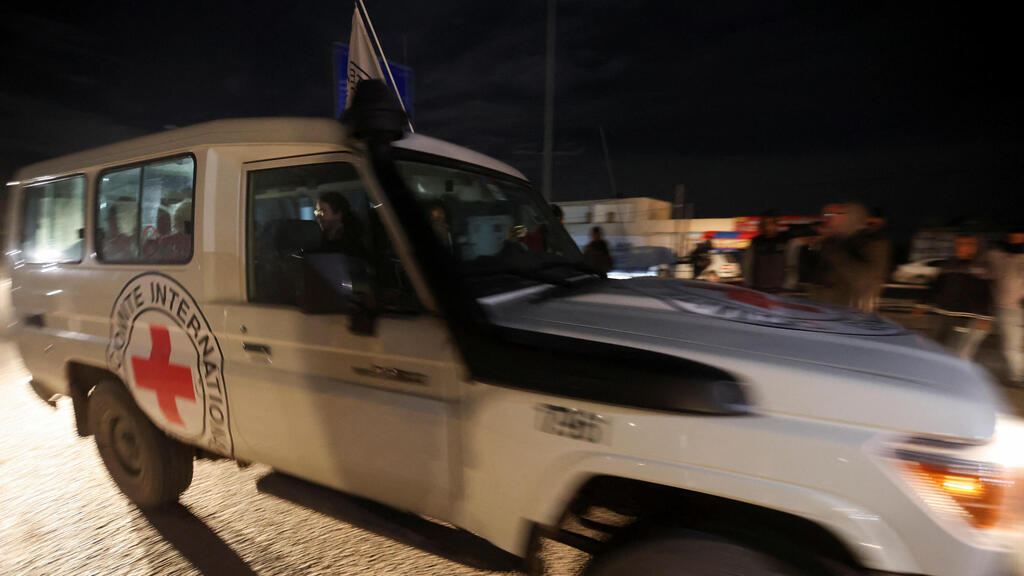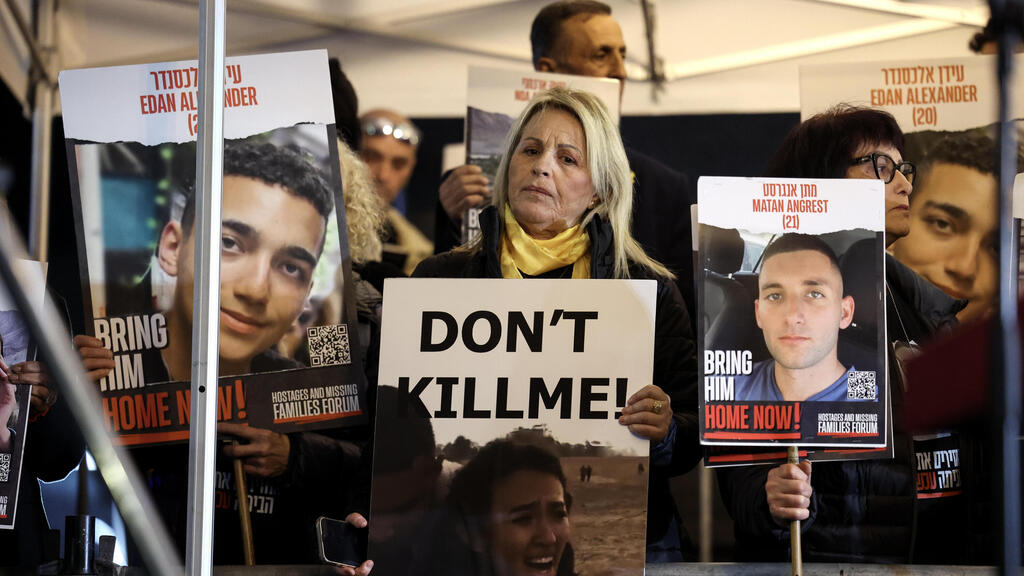Getting your Trinity Audio player ready...
Qatar is still waiting for the arrival of some of the medicines that are supposed to be transferred to Israeli hostages held in the Gaza Strip, CNN reported Sunday night, which is delaying the transfer. According to the report, which is based on an individual with knowledge of the details of the discussions, more than 40 hostages are supposed to receive medication.
Read more:
In the coming days, Qatar is supposed to transfer the drugs by plane to Al-Arish in Egypt, and from there they will be transferred to the Gazan Health Ministry in Gaza through the Rafah crossing. The Health Ministry is supposed to find a solution to transfer the medicines to the hostages via Hamas. CNN reported that the Red Cross will in no way be part of the transfer of the medicine.
Qatar is still waiting for the arrival of some of the medicines from another country.
The list of medicines was compiled by the personal doctors of the hostage. These are medicines that are defined as "life-saving," and are mainly intended for patients with chronic conditions - including asthma inhalers, heart medicines and blood pressure medicines.
Hamas had for a long time opposed the transfer of the medicines - and provided a significant list of demands in exchange for the current transfer of medicine for the hostages. Under the deal, Israel has agreed to allow the introduction of more humanitarian aid to the Strip, including medicine.
The agreement indicates a direct axis of Israel vis-a-vis the Qataris - and that there are ongoing talks with Doha. However, this does not mean that there will be a breakthrough in negotiations for a hostage release deal. Although the negotiations are ongoing, they are difficult and there have been no breakthroughs.
At the headquarters of the families of the hostages, they said at the end of last week: "We demand visual proof that the hostages do receive their medicines as a condition for the transfer of aid to Gaza. The shocking images of the hostages in captivity require increasing pressure on the countries involved in the negotiations to lead to an immediate release, and not stop at the transfer of medicines."
2 View gallery


The Red Cross will not be involved in the transfer of medicines to the hostages
(Photo: Reuters / Ibraheem Abu Mustafa)
Meanwhile, the Regional Emergency Director, Eastern Mediterranean Region, of the World Health Organization, Dr. Richard Brennan, says that the organization was not involved in the negotiations between Israel and Qatar on the transfer of medicine to the Israeli hostages in Gaza, but is ready to provide any assistance as needed. He again called for the release of the hostages on Sunday, and expressed concern about the humanitarian situation in the Gaza Strip.
In an interview with Ynet Live, Brennan was asked how he felt as a doctor about the fact that for 100 days Israelis are being held captive without the medicines they need.
"The position of the World Health Organization on this issue is very clear. Of course we want to see the captives being released unconditionally. If they continue to be held , they should have access to everything they need, including medical care. We call on anyone holding any captives to provide them with all the proper care they need, including medical care."
How do we make sure that the hostages get the medical care they need?
"There are negotiations on the political level, and of course the World Health Organization supported it. We want the hostages to be released, and if they are not released, they should receive the medical care they need. We were clear about this from the beginning. The World Health Organization is not involved in these negotiations. Of course, we will be ready to provide any assistance, any medical equipment, to support any agreement that will be made, in the sense of assistance for the needs of the hostages."
Dr. Brennan, last month a soldier who was seriously injured in Gaza died from a severe fungal infection. Did you find any indication of infections or fungi that are unique to Gaza?
"We have not seen cases of such fungal infection. One of the biggest problems at the moment is not only the deteriorating functioning of the hospitals, it is also the lack of functioning of the health system, including monitoring of diseases. We're trying to get it back on track. What we have seen in Gaza is a very large increase in other infectious diseases, including diarrhea and respiratory infections. We now have an outbreak of jaundice, scabies and so on.
"We are seeing increasing numbers not only of disease but also of death related to it," according to Brennan. "In terms of access to food, the entire population of Gaza is currently in crisis, we are already seeing rising numbers of malnutrition. So it is a toxic combination - malnutrition, outbreak of diseases, the winter months. We may see a lot more illness and death related to these conditions over the coming weeks and months, unless we change the situation in the coming weeks."
Brennan relied on data from the Hamas-run Health Ministry, which claims that more than 23,000 people have been killed in Gaza and more than 16,000 injured, although Western sources do not have confirmation of these numbers. He also said that the health system in Gaza is severely damaged.
"Out of 36 hospitals throughout Gaza, none of them are fully functional at the moment. 15 are partially functioning, six of the 24 hospitals in the northern Gaza Strip are partially functioning, and the others are not. Health care needs are soaring while the capacity of the health care system to address these needs is rapidly declining. Before the conflict, we had about 3,500 hospital beds available for Gaza residents, currently there are about 1,400 functioning," he told Ynet.
You understand that some of these hospitals are havens for terrorists, they contain terrorists, they keep hostages there, they are not just hospitals.
"The World Health Organization's position on this is very clear. We absolutely condemn any militarization of a health facility, any use of a medical facility as a place to hold prisoners," the doctor said. "However, there are clear protections for health facilities under international law. Even if there is a militarization of medical facilities, as we saw in many circumstances around the world, this does not mean that they automatically become a clear military target. There are principles that guide a counter-force as to how a medical facility should be dealt with if there is evidence of misuse and militarization and those principles seem clear: proportionality, distinction and caution. More than 24 hospitals were destroyed in the conflict, and there are more than two million Gazans in desperate need of medical care. We must find a way to fulfill these needs and we are not succeeding."
So what are your expectations from Israel?
"I think the UN is very clear about this. Of course, we ask for a stable cease-fire. We are asking this from Hamas as well, this is not a request addressed only to the Israeli forces. A cease-fire, and if that is not possible we ask for protected and free humanitarian access. The needs are enormous, the humanitarian aid itself will not satisfy the needs, we need a renewal of the activity of the commercial sector. We want a commitment to a peace process and a long-term solution, this is a terrible crisis."


